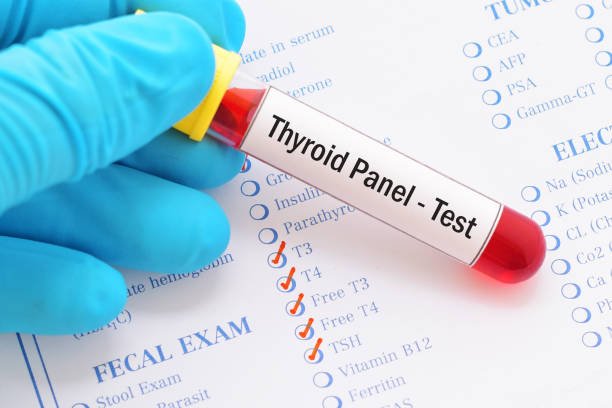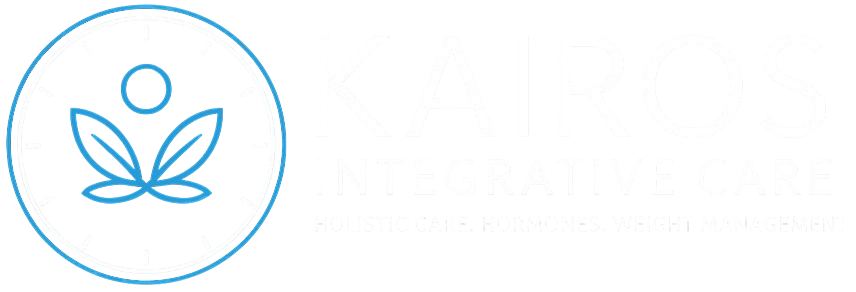Thyroid disorders are common worldwide. According to research, hundreds of millions of people live with some form of thyroid dysfunction, and many don’t even know it.
Hypothyroidism, which is low thyroid function, affects more women than men and often develops slowly, making symptoms easy to overlook.
In this guide, we’ll explore how the thyroid works, what happens when hormone signaling changes, why standard tests sometimes miss problems, and what we do to help restore balance.
What Your Thyroid Actually Does
Your thyroid gland is a small gland at the front of your neck, but it does a big job. It makes hormones mainly T4, which your body turns into T3, which controls how your body uses energy.
These hormones affect almost everything: body temperature, brain function, heart rate, digestion, mood, menstrual cycles, cholesterol, and even weight.
When your thyroid makes too little or your body can’t convert T4 to T3, your metabolism slows down. When it makes too much, everything speeds up.
Thyroid hormone insufficiency means your body is not getting enough usable thyroid signal. It matters because low thyroid activity impacts how you feel every day.
Thyroid Imbalance vs Diagnosed Hypothyroidism
A lot of people are told, Your TSH is in range, so your thyroid is fine. TSH is the brain’s signal that tells the thyroid to produce hormones. It helps, but it is not the whole story.

You can have a TSH that looks acceptable and still have low active T3, poor conversion from T4 to T3, or early autoimmune damage to the gland.
That is why we use the term thyroid imbalance when symptoms and deeper testing do not match a quick screening result.
Common Symptoms When Thyroid Signaling Slows
Your thyroid affects almost every system in your body, so when it’s underactive, the signs can show up in many ways. Not everyone experiences all symptoms. Look for symptoms like:
- Low energy that does not reset after rest
- Weight gain or difficulty losing weight with familiar habits
- Feeling cold when others are comfortable; cold hands or feet
- Dry skin, hair loss, or thinning eyebrows
- Mood changes, depression, or irritability
- Brain fog, slower recall, trouble focusing
- Constipation or slower digestion
- Irregular or heavy periods; fertility struggles
If you are nodding yes to several, it’s time to dig deeper. Let’s look at what’s happening and how we can help you feel like yourself again.
Why Does Thyroid Hormone Insufficiency Happen?
We rarely see a single cause. Most cases involve a mix of biology, stress, and environment.
Autoimmune Thyroiditis (Hashimoto’s)
Sometimes the immune system attacks the thyroid. Over time, this lowers hormone production. Antibody tests (TPO and TG) can catch it early.
Chronic Stress and Cortisol
High stress hormones block the conversion of T4 to active T3. Stress can also raise reverse T3, which blocks the thyroid signal inside cells.
Nutrient Gaps
Your thyroid needs nutrients. Iodine makes hormones. Selenium, zinc, and iron help activate them. Low B vitamins and vitamin D affect immune balance, especially in autoimmune thyroid cases.
Gut and Liver Health
A significant portion of the T4 to T3 conversion happens outside the thyroid, especially in the liver and gut. Poor digestion, inflammation, dysbiosis, or liver stress can reduce active hormone availability.
Hormone Shifts
Life stages like pregnancy, perimenopause, menopause, or changes in birth control can affect thyroid function. Low testosterone in men and adrenal problems can affect the thyroid, too. This is one reason thyroid imbalance often shows up during life transitions.
Environmental Load
Some chemicals, for example, perchlorate, heavy metals, and certain plastics, interfere with thyroid hormone production or binding. We ask about work exposures, water, and product use when suspicion is high.
Health Risks When Thyroid Problems Are Ignored
Untreated thyroid hormone insufficiency affects more than just energy; it impacts your whole body. Here’s what can happen over time:
- Higher cholesterol and triglycerides, making heart risk climb
- Weight gain and increased insulin resistance
- Infertility and complications during pregnancy
- Depression, brain fog, or slower thinking
- Irregular or heavier menstrual cycles
- In severe cases, slow heart rate and fluid retention
Addressing thyroid imbalance early supports long-term metabolic and cardiovascular health.
How We Test at Kairos Integrative Care
Getting answers starts with more than a quick TSH test. To understand why symptoms happen, we look deeper and often include:
- Full thyroid panel: TSH, Free T4, Free T3, Reverse T3
- Thyroid antibodies for Hashimoto’s screening
- Cortisol (blood, saliva, or urine patterns when indicated)
- Insulin and glucose, A1C when needed
- Lipid profile; sometimes advanced lipid particles
- Ferritin, iron, zinc, selenium, vitamin D, B12, folate
- In select cases, gut health or food reactivity testing

Along with labs, we review medications, lifestyle, stress, hormone shifts, sleep, and digestion. Putting these pieces together helps us find the root cause
What We Do When Thyroid Is Low or Borderline
Treatment depends on what we find. Not everyone needs medication right away. Many people improve by fixing nutrient gaps, reducing stress, and supporting thyroid conversion.
Nutrition Support
Balanced meals with protein, colorful plants, fiber, and trace minerals help your thyroid. We limit ultra-processed foods and sugar swings that strain metabolism.
Fixing Nutrient Gap
Selenium, zinc, iron (if low), iodine in safe amounts, and vitamin D support thyroid health. We add supplements only when needed and monitor levels.
Addressing Stress & Sleep
Simple tools like breathing exercises, morning light, and good sleep habits help hormones work better.
Gut Support
If you have digestion issues or food reactions, we address those because gut health highly affects thyroid function.
Medication (When Needed)
If symptoms persist or thyroid levels are very low, we may recommend medication, starting low, personalizing the dose, and tracking how you feel.
Ask Yourself
Use these questions as a personal screen before your next visit.
- Am I more tired now than a year ago despite similar habits?
- Have I gained weight or lost hair without a clear reason?
- Do I feel cold, slow, or mentally foggy much of the time?
- Did my provider say my thyroid test was normal, but symptoms persist?
- Do thyroid problems run in my family?
Bring your answers to your appointment. They help us decide how deep to test.
Conclusion
Thyroid issues can affect energy, mood, weight, and overall health, and sometimes labs miss the early signs. If you suspect a problem, it’s time to look deeper.
Lola, one of our Board‑Certified Nurse Practitioners, provides evidence‑informed, root‑cause hormone care for women and men.
We serve Houston, Sugar Land, and surrounding areas (77046 and 77478). We accept most major insurance plans, including Aetna, Cigna, UnitedHealthcare, Tricare, and more.
Book your Thyroid and Hormone Review today!




